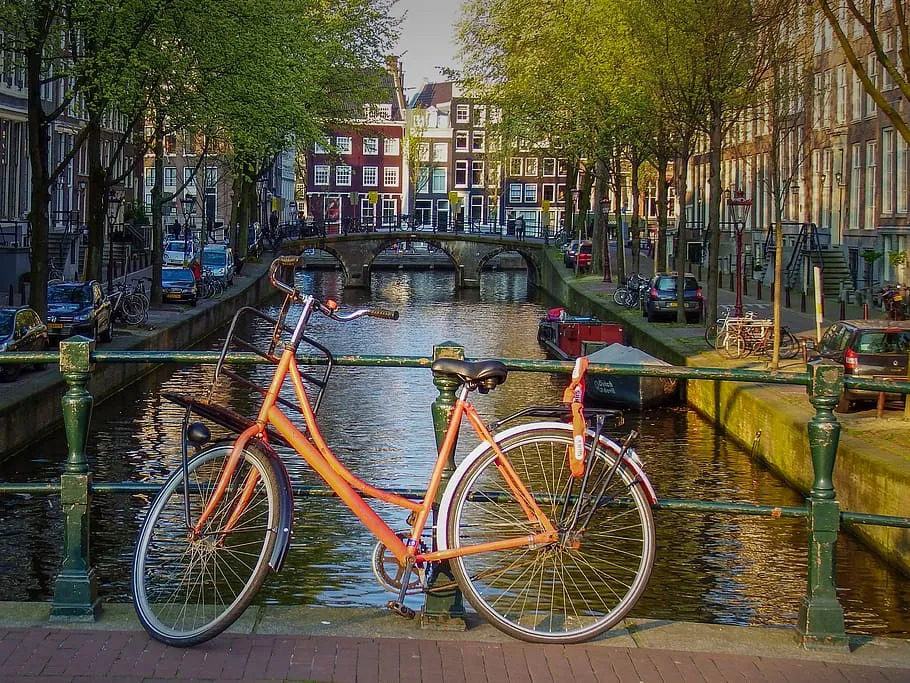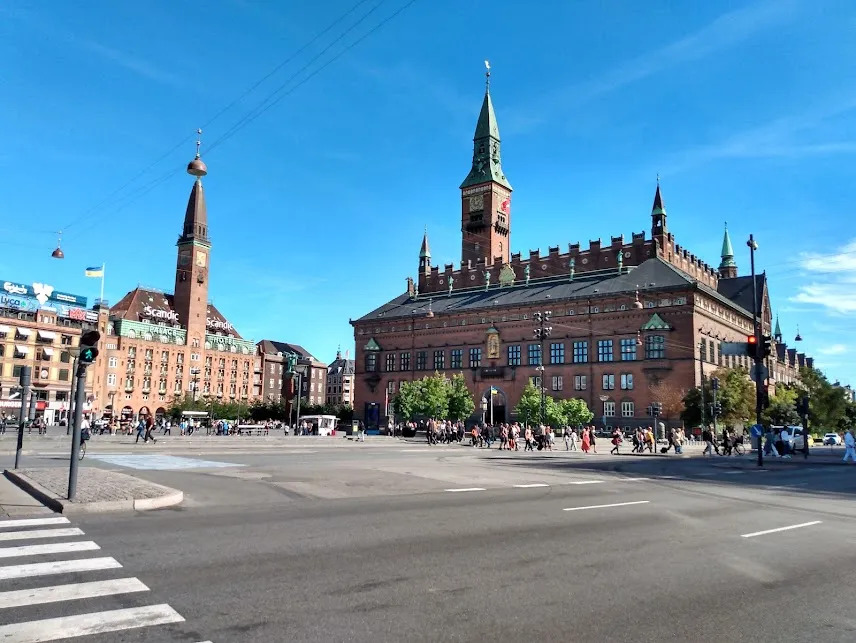This Europe Day, we recognize European leadership in plant-based diets! The so-called Old World is known for trendsetting urban liberal lifestyles, but it’s not just influencers and restaurateurs cashing in on the de facto vegan revolution. Elected governmental leaders are making their municipalities plant-based, for reasons of sustainability and social justice. From Barcelona and Geneva to Leeds and Glasgow, cities across the continent are pivoting away from animal products and toward a better future. Let’s take a tour.

The low countries are low-hanging fruit when it comes to veg-friendly policies, Belgium and the Netherlands famously progressive with their politics and their meals. Ghent in particular has made a reputation for itself as a plant-powered paradise. Since 2007, locals have referred to Thursdays as Donderdag Veggiedag, with more than 100 restaurants and half of the city’s population observing vegetarianism for the day. In a country famous for its chocolate and seafood, Ghent city government has made sure to offer free cooking classes to help anyone interested in learning to cook plant-based meals. City leaders know that transitioning to plant-based will help the city reach carbon neutrality by 2050, as planned.
Next door in the Netherlands, Amsterdam is the star pupil. City council lunches are vegetarian by default, unless someone requests otherwise — a simple but powerful way to nudge diners toward plant-based options. Council member Judith Krom then expanded this policy, proposing that at least half of all food served in municipal buildings be completely plant-based. (The proposal was accepted and will be implemented once existing contracts with catering businesses expire. Plant-based procurement conversations are well underway).
“[T]he municipality should not only support plant-based, healthy eating among its citizens, but also set the right example,” Krom shared with the Better Food Foundation. “We know that plant-based eating is better for the animals, better for the environment and better for our health. Therefore … the city of Amsterdam should promote it as much as possible, both in policy and within its own organization.”
Fellow council member Anke Bakker shares this vision, in turn proposing that the municipality encourage citizens to eat more plant-based protein. This proposal contained a host of suggestions, from promotional events to a ban on meat/dairy advertisements that would echo a similar ban in the nearby city of Haarlem. Bakker’s proposal resulted in a formalized “protein transition plan,” which is currently being implemented as part of the municipality’s food policy.
Such initiatives are aided by nongovernmental organizations such as the Green Protein Alliance (GPA), which aims to make 50 percent of Dutch protein consumed plant-based by 2025. In the town of Altena, the GPA is monitoring sales of plant-based foods at supermarkets, staging interventions such as taste tests at schools and restaurants, and hiring local celebrities as ambassadors of its “Plant-Based Together” campaign.

Denmark’s equivalent of the GPA is the Dansk Vegetarisk Forening (DVF), or Danish Vegetarian Association. The DVF takes a multipronged approach to advancing plant-based diets, from middle school workshops and professional chef trainings to “vegan-certified” labeling and political lobbying. Perhaps the DVF’s biggest victory came in June 2022 when the Association worked with Copenhagen councilor Katrine Kildgaard Nielsen to enshrine in law the right to a plant-based meal. Inspired by a 2017 Portuguese measure, the motion mandates that all public kitchens in Denmark — daycare centers, schools, nursing homes, hospitals, and jails alike — offer a 100 percent plant-based meal that is filling and nutritious.
To not offer a meal free from meat or dairy would effectively discriminate against those of certain religious traditions or food allergies (to say nothing of vegetarians or vegans fueled by personal ethical convictions). “[I]f people have special religious beliefs, we make sure we have halal et cetera, so no pork for them, and we make it work. But how is it any different if people want to eat plant-based? … You must be able to eat what you want,” insists Nielsen. (A prisoner in Switzerland is suing a Geneva prison over this very matter.) Unfortunately, in order to earn enough support to pass, the measure exempted children younger than six — a compromise that, according to Nielsen, has been the basis for “lots of conflicts between daycare [and] kindergarten personnel, and parents.” Still, Danes have taken a huge step in legitimizing plant-based diets, legally recognizing citizens’ right to a healthy meal compatible with their values and guaranteeing accessibility in government-run kitchens.

Europe’s successes extend outside the Union as well. Faversham Town Council, Exeter City Council, Oxford City Council, and Hythe Town Council all have adopted plant-based food policies and serve plant-based food at council events. Oxfordshire County Council has done likewise and went a step further in partnering with ProVeg UK to improve primary school food, redesigning menus with enticing language to nudge kids toward plant-rich diets (e.g., “x-ray vision carrots”). Haywards Heath Town Council and Norwich City Council have both endorsed the Plant Based Treaty, as has Edinburgh, Scotland.
The endorsements acknowledge our collective need to “actively transition away from animal-based food systems to plant-based systems.” Dozens of strategies can aid the transition (e.g., updating federal dietary guidelines, public information campaigns, plant-based meals in hospitals and prisons, mandated cancer warning labels on all processed meats), so each city’s approach looks a bit different. In Norwich, the “availability of plant-based options will be expanded at all council-run events, cafés, markets, and leisure centers.” As in Ghent, sustainability is the in: Over 80 percent of local councils in the UK have declared a climate emergency. Councils are quickly realizing that diet change is system change, and making mealtime DefaultVeg is one of the simplest ways to slash emissions. That said, the UK Department for Education currently requires meat to be served thrice weekly and dairy on all five weekdays. This situation is all too common: local progress hampered by archaic federal regulations.
These municipalities are just a handful among dozens worldwide that are reimagining food norms and modeling sustainable consumption. Today, though, we celebrate our European comrades and their role in building a resilient future.
To stay up to date on plant-forward city policies like those mentioned above, join our cities campaign. As part of our mailing list, you’ll unlock toolkits and webinars to help you transform your town — no matter which continent you call home.
Latest News
See All NewsWebinar: Food Systems Education
The Better Food Foundation is hosting a webinar, ‘Food Systems Education: Equipping the next generation of leaders through service learning” with Plant Futures & Switch4Good on Thursday, April 3, 2025 at 11:00 am PT / 2:00 pm ET.
Webinar: Best Practices in Plant-Based City Food Policy
The Center for Biological Diversity is hosting a webinar, ‘Best Practices in Plant-Based City Food Policy’ on Wednesday, April 9, 2025 at 4:00 pm ET / 1:00 pm PT.
These 7 Colleges Are Making Plant-Based Dining the New Norm This Fall
As the leaves change this fall, so do menus at universities nationwide — with plant-based foods rising to the top.